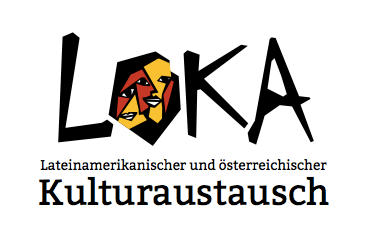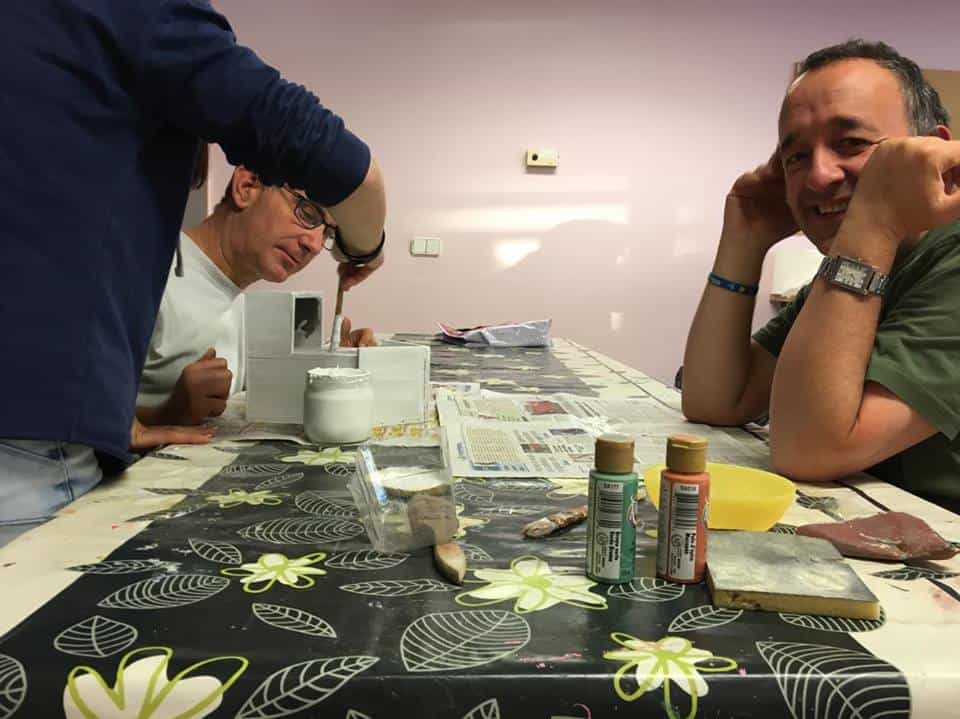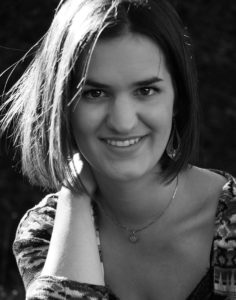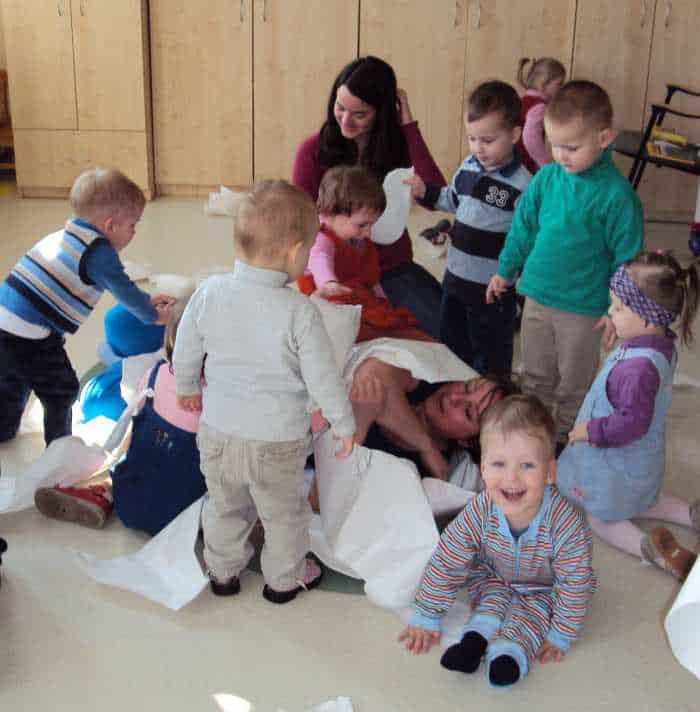„Selbsterfahrung in einer Umgebung des Nehmens und Empfangens“
Volunteer Erika Schuh reports on her three-month assignment as an English teacher in Peru (LoKa association)
In the summer of 2012, I decided to spend three months volunteering in a small village in the north of Peru. I had received information about a young NGO in Vienna called LoKa, whose aim is to set up a long-term language project in Magdalena de Cao. LoKa stands for Latin American-Austrian cultural exchange and, in addition to language teaching, aims to create an intercultural bridge between these two cultures.
I had worked as a teacher for many years and had been focusing on traveling and living abroad for years. I felt called. At the end of September, the trip took me via Buenos Aires to Lima and then along the Atacama Desert to Trujillo in the La Libertad region. From there it is a good hour to Magdalena de Cao. About 4 km from Magdalena, the temple site "El Brujo" of the pre-Inca Moche culture and the grave of the Dama de Cao, a mummified woman, were discovered in 2006. It turned out that she was a ruler of the Moche culture from the 4th century. The outstanding find prompted the construction of a museum and the opening of the museum and temple complex to tourists.
The location not only created new jobs, but also motivated the villagers of Magdalena to acquire or improve their English language skills in order to be able to receive foreign guests appropriately.
LoKa has responded to this need. The association cooperates with MINKA, an NGO in Trujillo that is committed to sustainable projects in agriculture and handicrafts. The director of the organization, Francisco José San Martín Baldwin, is the Austrian honorary consul in Trujillo and had been particularly active in the village renewal of Magdalena de Cao in previous years.
My assignment begins on October 1. My job is to do development work with regard to language teaching. The aim is to establish regular lessons for pupils and adults.
Akane, a Japanese volunteer who has been working on a tourism project in the village for two years, helps me to establish contacts with the institutions. The offer is surprisingly well received. The director of the village school is just as cooperative as the teachers and the director of the San Francisco private school. The latter wants two half-hour sessions with the primero and segundo grado. In the public school, one lesson per class per week is to be taught, i.e. 45 minutes. Initially, there is a timetable for the first, second and fourth grades. Three weeks later, the third, fifth and sixth grades are added. There is no photocopier in the school building and only basic equipment in the classrooms. Many sockets do not work. Extension leads are used to listen to songs on CD.
I start to work with simple means. I was able to make some photographic material in the form of copies as soon as I arrived at Minka in Trujillo. Paper is initially provided by the school, coloured and felt-tip pens and a CD player are the teaching aids I organize. Almost all the children have pencils. They still like to use the profesora's. Paper is used sparingly. At the beginning of the year, parents generally buy a quantity of coloring sheets for the children. But some children are left empty-handed because there are no funds. So, with the help of the association, we will provide these things in future.
„Profesora de ingles“ rufen die Kleinen zu Unterrichtsbeginn, kommen über den Hof gelaufen und begrüßen einen mit Bussis und Umarmungen. Für sie da zu sein, regelmäßig wieder zu kommen und mit ihnen zu lernen, scheint ihnen das größte Glück zu sein. Natürlich schließt das nicht aus, dass an manchen Tagen die Motivation fehlt und die Kinder sich lieber balgen oder Verstecken spielen. Der Vorteil der Freiwilligenarbeit ist jedoch, dass ohne Druck gelernt werden und jeder seinem Rhythmus gemäß und ohne Beurteilung Fortschritte machen kann. Mitgebrachte Kinderbücher und CDs bereichern die Unterrichtsarbeit. Die Kinder lauschen gerne den Geschichten, singen liebend gerne und machen freudig bei den Bewegungsspielen mit.
The adult work is more erratic. Initially, I estimate one hour a week at the Casa de Juventud. The offer is taken up by a few interested people. However, the fluctuation is high. New faces arrive every week and old familiar ones leave. Gradually, however, consistency is crystallizing. Representatives of the municipality, students, employees of the tourist office and the museum come with some regularity. Some of the seamstresses in the craft store are also interested in learning basic English about the goods and how to sell them. The lessons are adapted to the opening hours of the store and I receive support for the project at the beginning of November. Angela Tot has decided to stay for six months. She will stay until April, while my assignment comes to an end in December. From then on, we will teach together in the elementary school and then share the work with the adults. Working together and sharing some lessons is a relief in many ways. Word of the English lessons on offer is also spreading in the surrounding area. There are inquiries from the neighboring villages belonging to Magdalena who want to take part in the program. The future will show whether there will be enough volunteers to expand the project.
I live privately in the house of Señora Ana Maria. She rents out two rooms and looks after the well-being of the two volunteers. I like this authentic opportunity to get to know people, their culture and customs.
Many things are modest in the village. I'm getting used to the cold water. And to the lack of water at certain times. The fact that there is no fridge in the house is the least of my problems. You learn to only buy what you need at short notice. I should definitely mention that Señora Ana is an excellent cook! Laundry is done by hand in the village. There is also Leno's tried and tested address. She earns pocket money with it. The electricity is always out. Cell phone connections are often poor. The internet basically works.
The welcome in the village is warm right from the start. You feel welcome. Even the people who will probably never learn the foreign language receive the foreign guests warmly and with goodwill. They are all delighted that the outside world is showing an interest, imparting knowledge and skills and building a bridge of international understanding.
There is time to travel around the country on the long weekends. The variety of landscapes offers everything from desert to sea, lagoons and mountains to jungle. These are often adventurous explorations, long bus rides, but countless opportunities to connect with the country and its people.
Working on the project has been one of the most formative experiences of my life. This natural way of giving and receiving gives me a wonderful opportunity for self-awareness and exploring personal boundaries in such a culturally different country. Last but not least, it gives you the gift of its people's intuitive ability to read your wishes from your eyes and fulfill them.
Gracias LoKa, gracias Peru!
------------------------------------
More information:




